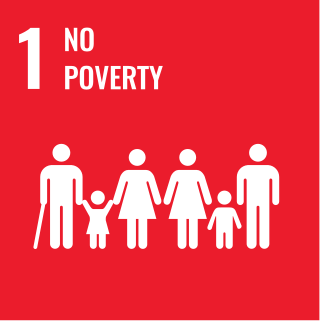
Agricultural policy describes a set of laws relating to domestic agriculture and imports of foreign agricultural products. Governments usually implement agricultural policies with the goal of achieving a specific outcome in the domestic agricultural product markets. Well designed agricultural policies use predetermined goals, objectives and pathways set by an individual or government for the purpose of achieving a specified outcome, for the benefit of the individual(s), society and the nations' economy at large. The goals could include issues such as biosecurity, food security, rural poverty reduction or increasing economic value through cash crop or improved food distribution or food processing.

Public health is "the science and art of preventing disease, prolonging life and promoting health through the organized efforts and informed choices of society, organizations, public and private, communities and individuals". Analyzing the determinants of health of a population and the threats it faces is the basis for public health. The public can be as small as a handful of people or as large as a village or an entire city; in the case of a pandemic it may encompass several continents. The concept of health takes into account physical, psychological, and social well-being, among other factors.

ONE Campaign is an international, non-partisan, non-profit organization advocating for the investments needed to create economic opportunities and healthier lives in Africa. The campaigning organization uses data, grassroots activism, political engagement, and strategic partnerships to get political leaders to support policies and programs that save lives and improve futures.

Poverty reduction, poverty relief, or poverty alleviation is a set of measures, both economic and humanitarian, that are intended to permanently lift people out of poverty. Measures, like those promoted by Henry George in his economics classic Progress and Poverty, are those that raise, or are intended to raise, ways of enabling the poor to create wealth for themselves as a conduit of ending poverty forever. In modern times, various economists within the Georgism movement propose measures like the land value tax to enhance access to the natural world for all. Poverty occurs in both developing countries and developed countries. While poverty is much more widespread in developing countries, both types of countries undertake poverty reduction measures.

Climate change has been a critical issue in Australia since the beginning of the 21st century. Australia is becoming hotter and more prone to extreme heat, bushfires, droughts, floods, and longer fire seasons because of climate change. Climate issues include wildfires, heatwaves, cyclones, rising sea levels, and erosion.

Rural poverty refers to situations where people living in non-urban regions are in a state or condition of lacking the financial resources and essentials for living. It takes account of factors of rural society, rural economy, and political systems that give rise to the marginalization and economic disadvantage found there. Rural areas, because of their small, spread-out populations, typically have less well maintained infrastructure and a harder time accessing markets, which tend to be concentrated in population centers.

Climate change and poverty are deeply intertwined because climate change disproportionally affects poor people in low-income communities and developing countries around the world. The impoverished have a higher chance of experiencing the ill-effects of climate change due to the increased exposure and vulnerability. Vulnerability represents the degree to which a system is susceptible to, or unable to cope with, adverse effects of climate change including climate variability and extremes.
The East Asia Climate Partnership (EACP) is Korea's international initiative for global cooperative development. Led by the Korea International Cooperation Agency (KOICA), a Korean government agency responsible for providing overseas grant aid, the EACP helps tackle climate change in developing countries and promotes green growth in Asia.

The Rotary Foundation is a non-profit corporation that supports the efforts of Rotary International to achieve world understanding and peace through international humanitarian, educational, and cultural exchange programs. It is supported solely by voluntary contributions.
Global Citizen, also known as Global Poverty Project, is an international education and advocacy organization that seeks to catalyze the movement to end extreme poverty and promote social justice and equity through the lens of intersectionality. The organization was founded by Hugh Evans, Michael Sheldrick, Simon Moss and Wei Soo, and aims to increase the number and effectiveness of people taking action to support the cause.

Climate change in Africa is an increasingly serious threat as Africa is among the most vulnerable continents to the effects of climate change. Some sources even classify Africa as "the most vulnerable continent on Earth". Climate change and climate variability will likely reduce agricultural production, food security and water security. As a result, there will be negative consequences on people's lives and sustainable development in Africa.
Pakistan is one of the two remaining countries in the world where poliomyelitis (polio) is still categorized as an endemic viral infection, the other one being Afghanistan. While it has yet to fully eradicate Polio, there has been a major downwards trend in the number of reported cases per year; the total count of wild poliovirus cases in Pakistan in 2019 was down to 147, compared to 84 in 2020, 1 in 2021, 20 in 2022, 6 in 2023 and 8 as of June 2024.

The 2030 Agenda for Sustainable Development, adopted by all United Nations members in 2015, created 17 world Sustainable Development Goals (SDGs). The aim of these global goals is "peace and prosperity for people and the planet" – while tackling climate change and working to preserve oceans and forests. The SDGs highlight the connections between the environmental, social and economic aspects of sustainable development. Sustainability is at the center of the SDGs, as the term sustainable development implies.

The 2015 Commonwealth Heads of Government Meeting, also known as CHOGM 2015 was the 24th Meeting of the Heads of Government of the Commonwealth of Nations. It was held in Malta from 27 to 29 November. Sri Lankan President Maithripala Sirisena handed the position of Commonwealth Chair-in-Office to Maltese prime minister Joseph Muscat at the meeting.

Climate change in Pakistan is a major issue for the country. Pakistan is highly vulnerable to climate change. As with the changing climate in South Asia as a whole, the climate of Pakistan has changed over the past several decades, with significant impacts on the environment and people. In addition to increased heat, drought and extreme weather in parts of the country, the melting of glaciers in the Himalayas has impacted some of the important rivers of Pakistan. Between 1999 and 2018, Pakistan ranked 5th in the countries affected by extreme weather caused by climate change.

Climate change education (CCE) is education that aims to address and develop effective responses to climate change. It helps learners understand the causes and consequences of climate change, prepares them to live with the impacts of climate change and empowers learners to take appropriate actions to adopt more sustainable lifestyles. Climate change and climate change education are global challenges that can be anchored in the curriculum in order to provide local learning and widen up mindset shifts on how climate change can be mitigated. In such as case CCE is more than climate change literacy but understanding ways of dealing with climate

Climate change in Ghana is impacting the people in Ghana in several ways as the country sits at the intersection of three hydro-climatic zones. Changes in rainfall, weather conditions and sea-level rise will affect the salinity of coastal waters. This is expected to negatively affect both farming and fisheries. Low precipitation, drought and wild fires are also some major effects associated with climate change in Ghana.

Sustainable Development Goal 1, one of the 17 Sustainable Development Goals established by the United Nations in 2015, calls for the end of poverty in all forms. The official wording is: "No Poverty". Member countries have pledged to "Leave No One Behind": underlying the goal is a "powerful commitment to leave no one behind and to reach those farthest behind first".

Global Goals Week is a shared commitment between a coalition of over 160 partners across all industries, which mobilizes annually in September to bring together communities, demand urgency, and supercharge solutions for the Sustainable Development Goals (SDGs). It was founded in 2016 by the United Nations Foundation, Project Everyone, and the United Nations Development Programme (UNDP). It is timed to coincide with the UN General Assembly "High-Level Week" in New York. The week includes events, summits, conferences, forums, workshops, pledges, and other activations in New York, around the world, and online. It usually runs alongside Climate Week NYC, the annual conference of Goalkeepers, Bloomberg Global Business Forum and many other high-level events.
Climate change vulnerability is a concept that describes how strongly people or ecosystems are likely to be affected by climate change. Its formal definition is the "propensity or predisposition to be adversely affected" by climate change. It can apply to humans and also to natural systems. Issues around the capacity to cope and adapt are also part of this concept. Vulnerability is a component of climate risk. It differs within communities and also across societies, regions, and countries. It can increase or decrease over time. Vulnerability is generally a bigger problem for people in low-income countries than for those in high-income countries.
















